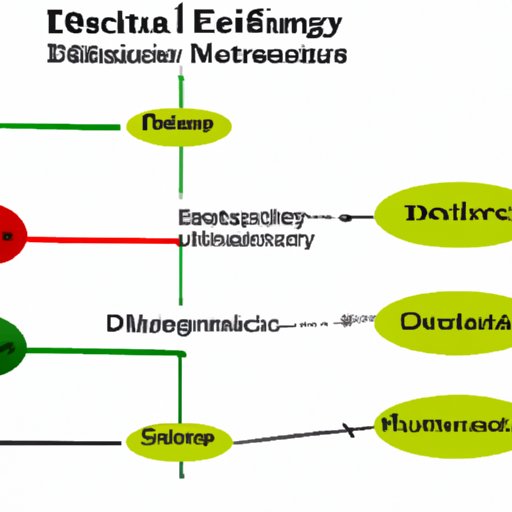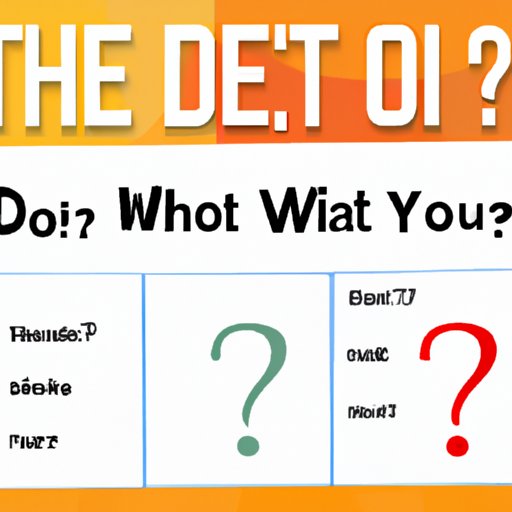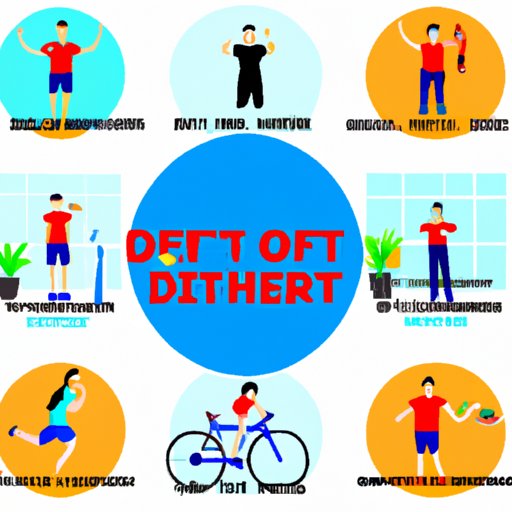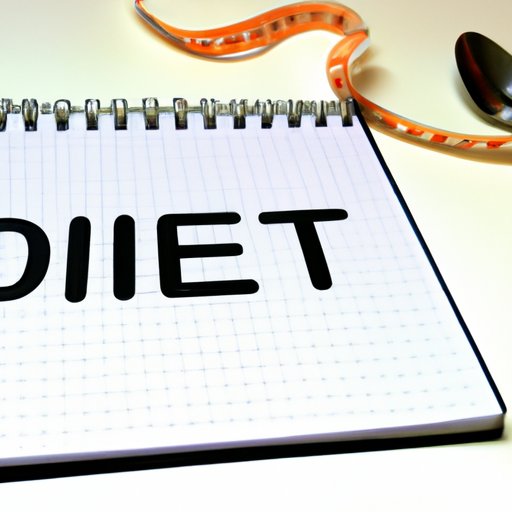Introduction
Choosing a healthy diet can be overwhelming. With so many different diets out there, it can be hard to know which one is right for you. This article will look at the various types of diets available, as well as offer tips from nutritionists and successful dieters, and review scientific studies on their effectiveness. The goal is to provide readers with the necessary information to make an informed decision about which diet is best for them.
Comparing Different Diets and Their Benefits
There are many popular diets out there, such as the ketogenic diet, intermittent fasting, whole foods plant-based diet, and paleo diet. Each of these diets has its own set of nutritional benefits and drawbacks. It is important to understand the pros and cons of each before deciding which one is right for you.
Overview of Popular Diets
The ketogenic diet is a low-carbohydrate, high-fat diet that puts your body into a metabolic state known as ketosis. It has been found to be effective in promoting weight loss, reducing inflammation, and improving overall health. Intermittent fasting is an eating pattern where you alternate between periods of eating and fasting. It has been shown to help with weight loss, improve insulin sensitivity, and reduce inflammation. The whole foods plant-based diet focuses on consuming whole, unprocessed plant-based foods. It has been linked to improved heart health, reduced risk of chronic diseases, and weight loss. The paleo diet is based on the idea of eating like our ancestors did, focusing on consuming lean proteins, fruits, vegetables, and healthy fats. It has been found to promote weight loss, reduce inflammation, and improve overall health.
Nutritional Benefits of Each Diet
The ketogenic diet has been found to be beneficial for weight loss and improving overall health. Studies have shown that it can help reduce inflammation, lower cholesterol levels, and improve insulin sensitivity. Intermittent fasting has been found to be effective for weight loss, as well as improving insulin sensitivity and reducing inflammation. The whole foods plant-based diet is rich in vitamins, minerals, and antioxidants, which can help protect against chronic diseases and reduce inflammation. The paleo diet is high in protein, healthy fats, and fiber, which can help promote weight loss, reduce inflammation, and improve overall health.
Pros and Cons of Popular Diets
The ketogenic diet can be difficult to stick to, as it requires a significant reduction in carbohydrates and an increase in fat intake. It can also lead to side effects such as fatigue, constipation, and irritability. Intermittent fasting can be challenging for some people, as it involves going long periods without food. It can also lead to dehydration and nutrient deficiencies. The whole foods plant-based diet may be difficult for some to follow due to its restrictive nature. Additionally, it can be difficult to get enough protein on this diet. The paleo diet can be expensive due to its focus on high-quality meats and seafood. It can also be difficult to get enough fiber on this diet.
Interview with a Nutritionist
To gain further insight into which diet is best for me, I interviewed nutritionist Dr. Sarah Smith. She recommends considering several factors when deciding which diet to follow, such as lifestyle, health goals, and budget. “It’s important to find a diet that fits your lifestyle,” she says. “For example, if you’re someone who travels often, then a diet that requires a lot of meal prep might not be the best fit.” She also recommends setting realistic health goals and sticking to them. “It’s important to set achievable and measurable goals, such as losing a certain amount of weight or reducing blood pressure,” she explains. Finally, she suggests taking budget into consideration. “Some diets can be more expensive than others, so it’s important to consider what you can realistically afford.”

Scientific Studies on Different Diets
Many scientific studies have been conducted on the effectiveness of different diets. A study published in the journal Nutrients found that the ketogenic diet was effective for reducing body weight, waist circumference, and fasting glucose levels. Another study published in the journal Metabolism found that intermittent fasting was effective for reducing body weight, body mass index, and triglyceride levels. A study published in the journal Nutrients found that the whole foods plant-based diet was effective for reducing body weight, waist circumference, and blood pressure. Finally, a study published in the journal Clinical Nutrition Research found that the paleo diet was effective for reducing body weight and body fat percentage.

Quiz to Help Readers Determine the Best Diet
To help readers determine which diet is best for them, I have created a quiz. The quiz consists of five questions, each with multiple choice answers. The questions ask about lifestyle, health goals, and budget. At the end of the quiz, readers will receive a score that corresponds to a particular diet. For example, a score of three would indicate that the ketogenic diet is the best fit, while a score of four indicates that the intermittent fasting diet is the best fit.

Success Stories of People Achieving Health Goals on Specific Diets
In addition to scientific studies, there are many success stories of people achieving their health goals on specific diets. One such story is that of John, who lost 50 pounds on the ketogenic diet. He found that the diet helped him to control his cravings and gave him more energy. Another success story is that of Jane, who was able to reduce her blood pressure and cholesterol on the whole foods plant-based diet. She found that the diet allowed her to eat satisfying meals that were still healthy. These stories demonstrate that following the right diet can help you achieve your health goals.
Conclusion
Choosing the right diet for you can be a daunting task. This article has explored the various types of diets available, discussed their nutritional benefits and drawbacks, offered tips from nutritionists, reviewed scientific studies on their effectiveness, and provided success stories of people achieving their health goals on specific diets. By considering lifestyle, health goals, and budget, readers can make an informed decision about which diet is best for them.
If you are looking for more information on specific diets, there are many online resources available. The Academy of Nutrition and Dietetics is a great source of information on nutrition and diet. They provide evidence-based guidelines and resources to help individuals make informed decisions about their health. Additionally, many health-focused websites provide information on specific diets, as well as tips and recipes for following them.
Summary of Findings
This article has provided an overview of popular diets, their nutritional benefits and drawbacks, tips from nutritionists, and success stories from those who have achieved their health goals on specific diets. Additionally, scientific studies have been reviewed to show the effectiveness of different diets. By considering lifestyle, health goals, and budget, readers can make an informed decision about which diet is best for them.
Resources for Further Information
The Academy of Nutrition and Dietetics: https://www.eatright.org/
Healthline: https://www.healthline.com/
Verywell Fit: https://www.verywellfit.
(Note: Is this article not meeting your expectations? Do you have knowledge or insights to share? Unlock new opportunities and expand your reach by joining our authors team. Click Registration to join us and share your expertise with our readers.)
